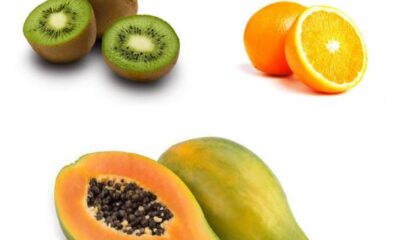Health
Mental Health Versus Sleep; The Benefits Of Sleep On Your Mental Health.

Mental Health Versus Sleep; The Benefits Of Sleep On Your Mental Health
Mental health and sleep are connected in a way that both affects each other. When you get good sleep, you are able to function well, emotionally, socially, and even psychologically, being able to carry out various activities for the day. When you don’t get good and quality sleep, you will find it hard to focus on activities making you feel frustrated, stressed, and burnt out.

People are increasingly getting aware of mental health and the impacts it has on everyday living. Sleep amongst other factors can help you improve your mental health by allowing for adequate blood circulation.
What Is The Connection Between Sleep And Mental Health?
When you have a mental health issue, you will find it difficult to sleep and rest your mind and body. This state of being restless and not getting enough sleep then worsen the mental health issue you are facing.
For instance, you have to pay your rent in two months but you don’t have the money for it. This keeps you worried and anxious (mental health issue). Since you are in this state, it becomes difficult for you to sleep and rest your mind. Not getting adequate sleep can deprive your brain of the right amount of blood circulation it needs to get nourished and function properly.
Do you also know that how you act, think and behave also affects your physical well being? Let’s take depression for example. A depressed person is always sad and has lost interest in most things about life including their health. This can lead to serious health issues like diabetes, stroke, etc. The presence of these health issue then increases the depression issue making them feel more sad and uninterested about life.
The Science Of Sleep: It’s Impact On Brain Function And Emotions.
It was believed before that your brain is dormant when you sleep but researches made has proven that human brain is active during sleep. This is because it recieves much blood flow during this period.
As you sleep, your brain goes through different cycles. In the first part of the cycle called Non REM sleep, made of four stages, your brain’s learning and memory ability is improved upon.
The four stages in the cycle includes;
- Being awake and slowly falling asleep.
- Light sleeping where your heart rate and breathing is regulated and body temperature reduces.
- Deep sleep is encountered in the last two stages. In this stages, you know nothing of what is happening in your external environment.
In the second part of the cycle called REM, your eye movement and brain waves are similar to that of being awake. Your breathing is increased.
Normally, the cycle will repeat for four to five times before you are fully awake. But with each cycle, the deep sleep you experience in stage three and four in the first cycle part reduces.
Being sleep deprieved affects your brain’s function and negatively impacts your emotions. When you get healthy amount of sleep, it improves your brain’s ability to acquire and retain informations. Research has also shown that waste products from the brain cells are removed effectively. Something that isn’t very possible when you are awake.
Your brain being able to receive adequate rest and enough detoxification enhances how you think, act, and behave. Thereby, reducing mental health issues.
Here are some mental health issues that can affect your mood, behavior and thinking.
- Depression.
- Anxiety disorders.
- Eating disorders.
- Addictive behaviors.
Benefits Of Quality Sleep.
Some common things you stand to benefit from getting quality sleep are listed below.
- Improved Weight: Getting enough sleep helps the brain function properly and thus helps you control how you eat. Excessive eating can also be a cause of irrational weight gain but eating in the right quantity can help with improved and controlled weight gain.
- Improved Productivity: Adequate sleep helps you think clearly, make better decisions, and increases your focus level leading to better performances at work and in life.
- Enhanced Mood: Have you noticed how happy you are each morning after getting adequate rest at night? That’s it. Getting enough sleep helps your body relax from the day’s stress.
- Improved Learning and Memory: sleep helps to increase blood flow to the brain thereby giving it essential nutrients from the blood and detoxifying the brain of worn out cells.
Practical Tips For Improved Quality Of Sleep.
Experiencing a better state of mental health, you will need to improve the quality of your sleep. Here are easy to understand prayical tips for improving your sleep quality.
- Turn off your room light an hour before bed time.
- Dim the light from your gadget as those lights make it harder to fall asleep.
- Eat your dinner early, at least 2 hrs before bedtime.
- Avoid taking caffeine or drinks containing caffeine as it was produced in such a way to deprive you of sleep.
- Limit daytime naps by taking at most an hour of sleep during the day if you must.
- Learn to manage your worries by jotting down troubling thoughts before bedtime. Learning more on stress management can help you.
Conclusion.
Your mental health affects not just your sleep but every area of your life. You are encouraged to prioritize matters of mental health and see a medical practioner if you can’t manage mental health issues on your own.

Health
Workout Routines That Support Bones Health

Strong bones depend on more than just calcium or supplements. Research shows that bones respond to physical stress: when muscles and weight-bearing activities challenge the skeleton, bone tissue becomes denser and stronger. To protect skeletal health over the long term, exercise should combine weight-bearing activity, resistance training, and balance work. Together, these exercises address the main risk factors for fractures: low bone density, weak muscles, and poor coordination.

Photo Credit – Google
Weight-bearing activity doesn’t need to be extreme to be effective. Regular brisk walking around neighbourhoods or local parks strengthens hips, legs, and spine, while climbing stairs or light jogging improves lower-body density. Dance classes, including Afrobeat or traditional Nigerian dances, provide varied movement patterns that engage muscles and improve coordination. Starting with 15–20 minutes per session, three to five days a week, and gradually increasing intensity or duration can deliver measurable benefits.

Photo Credit – Google
Resistance training plays a key role in maintaining strong bones. Gradually increasing weight or resistance helps muscles and bones adapt. Exercises such as squats and deadlifts target the hips, thighs, and spine, while lunges and step-ups build strength in the lower body and promote functional movement. Push-ups, pull-ups, and shoulder presses strengthen the upper body and spine. Two to three sessions per week covering all major muscle groups are sufficient. Free weights, resistance bands, or bodyweight exercises can all be effective depending on what equipment is available.

Photo Credit – Google
Balance is equally important because falls are a leading cause of fractures. Single-leg stands and heel-to-toe walking improve stability and coordination, while yoga, Tai Chi, or mobility exercises enhance control and complement other workouts. Integrating balance with strength and weight-bearing exercises provides a complete approach to bone health.
Common mistakes include relying solely on low-impact cardio such as swimming or cycling, which has little effect on bone density, and attempting high-impact exercises without preparation, which can increase injury risk. Effective routines should be planned, progressive, and performed consistently to build resilience safely.

Photo Credit – Google
A sample weekly schedule could include strength-focused exercises on Monday, such as squats or step-ups, deadlifts or hip-hinge movements, and push-ups or shoulder presses. Wednesday could focus on weight-bearing activity and balance through brisk walks, single-leg and heel-to-toe drills, and light dynamic movements. Friday can target functional strength with lunges or carries using household objects, core stability exercises, and stretching or yoga. This cycle can be repeated weekly, increasing load or complexity gradually.
Strong bones require intentional, evidence-based exercise. By combining weight-bearing activity, resistance training, and balance work, Nigerians can maintain bone density, reduce fracture risk, and improve overall skeletal resilience. Starting at your current fitness level, increasing load progressively, and including balance exercises will help protect bones for the long term.
Health
Disordered Eating Vs. Eating Disorder: Experts Explain The Differences And When To Seek Help

Disordered eating and clinical eating disorders are not interchangeable. Disordered eating refers to irregular or emotionally influenced habits around food: chronic dieting, skipping meals, rigid food rules, occasional binge episodes or persistent preoccupation with calories, weight or body shape. These habits may shift, but when repeated over time they often point to growing vulnerability.
Clinical eating disorders, by contrast, are diagnosed mental-health or medical conditions marked by persistent, patterned behaviours that impair physical health, mental wellbeing or daily functioning. Conditions such as anorexia nervosa, bulimia nervosa, binge‑eating disorder and other specified feeding or eating disorders fall into this category.

Image: Google
Evidence from Nigerian research confirms that disordered eating attitudes and risk for eating disorders are present among young adults and adolescents. In a study of more than 1,050 undergraduates from two higher‑education institutions in Lagos, roughly 16 percent scored positive on the EAT‑26 screening tool for disordered eating attitudes.
At a university in Ile‑Ife, a survey of female undergraduates found that 17.1 percent were classified as at high risk for eating disorders, based on the same screening instrument.
A more recent analysis among female undergraduates in Lagos found a lower prevalence of disordered eating (about 5 percent). Still, the study flagged a strong association between body-image dissatisfaction, body‑mass index (BMI) and disordered eating attitudes.
Adolescents are not exempt: a survey of 13 to 19-year-olds in Ibadan used screening tools to assess disordered eating behaviours and feeding/eating disorders. Results showed that 28.2 percent exhibited disordered eating behaviours, and a significant portion also met screening criteria for feeding/eating disorders.

Image credit: Google
Clinical, clearly diagnosed cases have also been documented. There’s a recorded instance of a 20-year-old undergraduate at a Nigerian university diagnosed with anorexia nervosa showing that what may start as dieting or food anxiety can escalate into serious health and psychiatric risk.
Because disordered eating and eating disorders exist within the Nigerian context, distinguishing between them matters. Persistent preoccupation with food, weight or body shape; regular dieting, bingeing or purging; emotional distress tied to eating; and disruption of everyday life are all red flags. When those signs persist, seeking professional support whether nutritional counselling, psychological therapy or medical care becomes essential.
Health
The Exercise That Keeps You Younger

If you’ve ever met someone in their fifties who moves like they’re still in their twenties, it’s likely they’ve discovered the simple habit that keeps the body from giving in to age: regular movement.

While fitness trends keep changing, one form of exercise has stayed constant in its benefits: strength training. It’s not about building bulky muscles or chasing a perfect body. It’s about keeping your bones strong, your joints stable, and your metabolism from slowing down. After the age of 30, the body naturally begins to lose muscle each year. That’s why everyday tasks, like climbing stairs or carrying groceries, start to feel heavier. Strength training helps reverse that.

Research supports this claim. People who lift weights or engage in resistance exercises have lower risks of diabetes, heart disease, and cognitive decline. But beyond the science, it’s about how it makes you feel. Nigerians juggling work, traffic, and family life know how draining each day can be. Even short sessions of body-weight squats, lunges, or push-ups a few times a week can recharge you better than most expensive wellness fads.

It also boosts your mood. Physical activity releases chemicals that help clear mental fog and lift your energy. It’s your body’s way of proving it still has strength to give.
You don’t need a gym to start. A mat, a pair of dumbbells, or even two water bottles will do. The goal is to stay consistent, to keep your body active enough to stay responsive.
Each push, lift, or stretch is a reminder that staying young isn’t about denying age; it’s about moving through it with strength.
-

 Celebrity Style4 months ago
Celebrity Style4 months agoMercy Aigbe Keeps it Sharp in Ivory Dress
-

 Celebrity Style5 months ago
Celebrity Style5 months agoTwo Ways to Wear a Suit, According to Liquorose
-

 Celebrity Style4 months ago
Celebrity Style4 months agoBella Okagbue Puts a Spin on Feminine Suiting
-

 Fashion5 months ago
Fashion5 months agoBella Okagbue Clean London Look
-

 Fashion4 months ago
Fashion4 months agoTeminikan Experiments with Geometry in a Woven Mini
-

 Music5 months ago
Music5 months agoTiwa Savage Was in New York for Her Album Media Run
-

 Health5 months ago
Health5 months agoWhich Fruits Are Highest in Calcium?
-

 Lagos Fashion Week3 months ago
Lagos Fashion Week3 months agoLagos Fashion Week’s Earthshot Prize Win Highlights a Changing Direction in African Fashion Production
-

 Beauty5 months ago
Beauty5 months agoMust Adapt Beauty Routine for Woman Above 25
-

 Fashion5 months ago
Fashion5 months agoAmina Cocoa Just Made the Two-Piece Too Easy
























